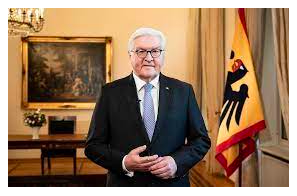The “emergency brake” measures include a controversial nighttime curfew and strict limits on social contacts.
German President Frank-Walter Steinmeier on Thursday signed into law new legislation designed to tackle high coronavirus infection numbers across the country.
The national “emergency brake” grants the federal government extra powers if caseloads exceed certain levels, and includes measures such as a nighttime curfew and limits on social contacts.
The new legislation was passed by the German lower house of parliament on Wednesday, before receiving final approval from the upper house — where Germany’s 16 states are represented — earlier on Thursday.
The changes to the Infectious Diseases Protection Act is aiming to have some impact on Germany’s fight against the third wave of coronavirus infections.
The federal government has been technically in charge of restriction measures, but, in Germany’s decentralized structure, the 16 states were largely free to implement those guidelines as they saw fit.
Increasingly, the states have diverged on how to implement measures — leading to disparities across state borders on what rules were in place. Some states were opening up, despite exponential infection growth, while others remained closed. Although this may have won state premiers popularity among voters, it has also seen infection numbers soar.
Faced with such inconsistency, German Chancellor Angela Merkel’s government introduced this legislation to legally obligate — rather than cajole — states into specific action in certain circumstances.
Read more at https://www.dw.com/en/german-president-signs-national-coronavirus-rules-into-law/a-57272234




